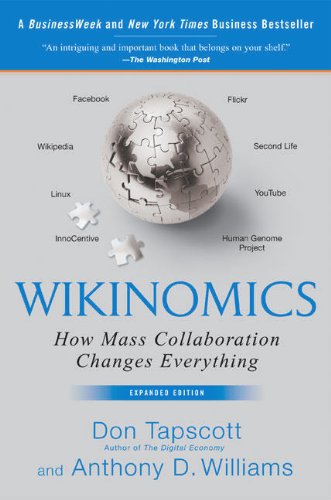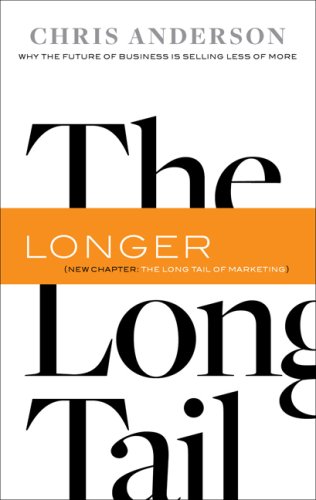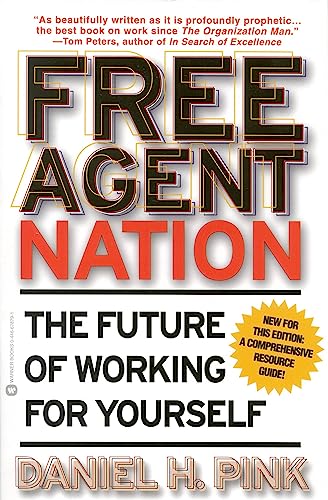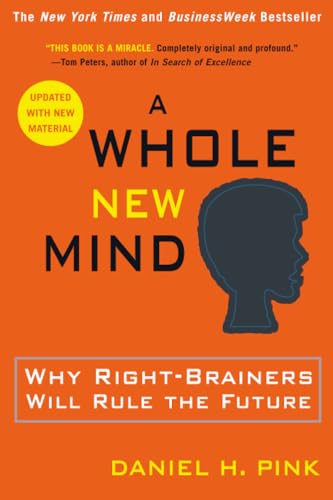Business In The World Today
Explore top books on the business world today—essential reads for entrepreneurs, leaders, and professionals to thrive in today's competitive market.

Book
The World is Flat
by Thomas L. Friedman
Offers a concise history of globalization, discussing a wide range of topics, from the September 11 terrorist attacks to the growth of the middle class in both China and India.



Book
The Google Story (2018 Updated Edition)
by David A. Vise
The definitive, bestselling account of the company that changed the way we work and live, updated for the twentieth anniversary of Google’s founding with analysis of its most recent bold moves to redefine the world—and its even more ambitious plans for the future. Moscow-born Sergey Brin and Midwest-born Larry Page dropped out of graduate school at Stanford University to, as they said, “change the world” through a powerful search engine that would organize every bit of information on the Web for free. The Google Story takes you deep inside the company’s wild ride from an idea that struggled for funding in 1998 to a firm that today rakes in billions in profits. Based on scrupulous research and extraordinary access to Google, this fast-moving narrative reveals how an unorthodox management style and a culture of innovation enabled a search-engine giant to shake up Madison Avenue, clash with governments that accuse it of being a monopoly, deploy self-driving cars to forever change how we travel, and launch high-flying Internet balloons. Unafraid of controversy, Google is surging ahead with artificial intelligence that could cure diseases but also displace millions of people from their jobs, testing the founders’ guiding mantra: DON’T BE EVIL. Praise for The Google Story “[The authors] do a fine job of recounting Google’s rapid rise and explaining its search business.”—The New York Times “An intriguing insider view of the Google culture.”—Harvard Business Review “An interesting read on a powerhouse company . . . If you haven’t read anything about one of today’s most influential companies, you should. If you don’t read The Google Story, you’re missing a few extra treats.”—USA Today “Fascinating . . . meticulous . . . never bogs down.”—Houston Chronicle

Book
Built to Last
by Jim Collins
"This is not a book about charismatic visionary leaders. It is not about visionary product concepts or visionary products or visionary market insights. Nor is it about just having a corporate vision. This is a book about something far more important, enduring, and substantial. This is a book about visionary companies." So write Jim Collins and Jerry Porras in this groundbreaking book that shatters myths, provides new insights, and gives practical guidance to those who would like to build landmark companies that stand the test of time. Drawing upon a six-year research project at the Stanford University Graduate School of Business, Collins and Porras took eighteen truly exceptional and long-lasting companies -- they have an average age of nearly one hundred years and have outperformed the general stock market by a factor of fifteen since 1926 -- and studied each company in direct comparison to one of its top competitors. They examined the companies from their very beginnings to the present day -- as start-ups, as midsize companies, and as large corporations. Throughout, the authors asked: "What makes the truly exceptional companies different from other companies?" What separates General Electric, 3M, Merck, Wal-Mart, Hewlett-Packard, Walt Disney, and Philip Morris from their rivals? How, for example, did Procter & Gamble, which began life substantially behind rival Colgate, eventually prevail as the premier institution in its industry? How was Motorola able to move from a humble battery repair business into integrated circuits and cellular communications, while Zenith never became dominant in anything other than TVs? How did Boeing unseat McDonnell Douglas as the world's best commercial aircraft company -- what did Boeing have that McDonnell Douglas lacked? By answering such questions, Collins and Porras go beyond the incessant barrage of management buzzwords and fads of the day to discover timeless qualities that have consistently distinguished out-standing companies. They also provide inspiration to all executives and entrepreneurs by destroying the false but widely accepted idea that only charismatic visionary leaders can build visionary companies. Filled with hundreds of specific examples and organized into a coherent framework of practical concepts that can be applied by managers and entrepreneurs at all levels, Built to Last provides a master blueprint for building organizations that will prosper long into the twenty-first century and beyond.

Book
Good to Great
by Jim Collins
The Challenge Built to Last, the defining management study of the nineties, showed how great companies triumph over time and how long-term sustained performance can be engineered into the DNA of an enterprise from the verybeginning. But what about the company that is not born with great DNA? How can good companies, mediocre companies, even bad companies achieve enduring greatness? The Study For years, this question preyed on the mind of Jim Collins. Are there companies that defy gravity and convert long-term mediocrity or worse into long-term superiority? And if so, what are the universal distinguishing characteristics that cause a company to go from good to great? The Standards Using tough benchmarks, Collins and his research team identified a set of elite companies that made the leap to great results and sustained those results for at least fifteen years. How great? After the leap, the good-to-great companies generated cumulative stock returns that beat the general stock market by an average of seven times in fifteen years, better than twice the results delivered by a composite index of the world's greatest companies, including Coca-Cola, Intel, General Electric, and Merck. The Comparisons The research team contrasted the good-to-great companies with a carefully selected set of comparison companies that failed to make the leap from good to great. What was different? Why did one set of companies become truly great performers while the other set remained only good? Over five years, the team analyzed the histories of all twenty-eight companies in the study. After sifting through mountains of data and thousands of pages of interviews, Collins and his crew discovered the key determinants of greatness -- why some companies make the leap and others don't. The Findings The findings of the Good to Great study will surprise many readers and shed light on virtually every area of management strategy and practice. The findings include: Level 5 Leaders: The research team was shocked to discover the type of leadership required to achieve greatness. The Hedgehog Concept (Simplicity within the Three Circles): To go from good to great requires transcending the curse of competence. A Culture of Discipline: When you combine a culture of discipline with an ethic of entrepreneurship, you get the magical alchemy of great results. Technology Accelerators: Good-to-great companies think differently about the role of technology. The Flywheel and the Doom Loop: Those who launch radical change programs and wrenching restructurings will almost certainly fail to make the leap. “Some of the key concepts discerned in the study,” comments Jim Collins, "fly in the face of our modern business culture and will, quite frankly, upset some people.” Perhaps, but who can afford to ignore these findings?

Book
Freakonomics
by Steven D. Levitt
Which is more dangerous, a gun or a swimming pool? What do schoolteachers and sumo wrestlers have in common? How much do parents really matter? These may not sound like typical questions for an economist to ask. But Steven D. Levitt is not a typical economist. He studies the riddles of everyday life—from cheating and crime to parenting and sports—and reaches conclusions that turn conventional wisdom on its head. Freakonomics is a groundbreaking collaboration between Levitt and Stephen J. Dubner, an award-winning author and journalist. They set out to explore the inner workings of a crack gang, the truth about real estate agents, the secrets of the Ku Klux Klan, and much more. Through forceful storytelling and wry insight, they show that economics is, at root, the study of incentives—how people get what they want or need, especially when other people want or need the same thing.



Book
Common Wealth
by Jeffrey Sachs
Presents an outline for achieving sustainable and equitable global prosperity that addresses key needs in the areas of environmental responsibility, energy, and biodiversity, in order to avert imminent economic catastrophe.

